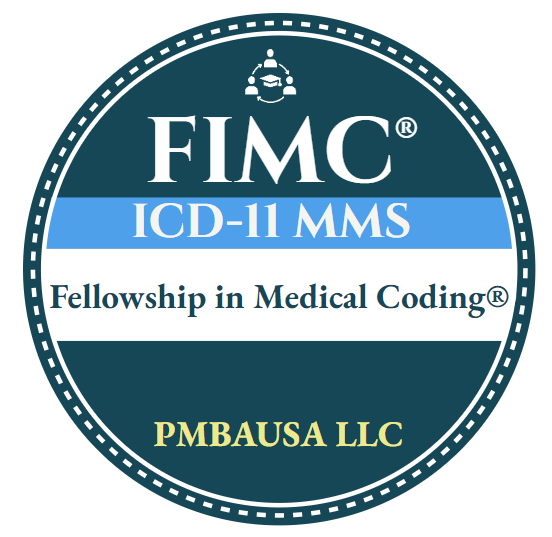FIMC - ICD-11 Training and Credential
The Fellowship in ICD-11 Medical Coding (FIMC-ICD-11) is an advanced training and credentialing program designed to equip healthcare professionals with comprehensive knowledge and expertise in ICD-11. Offered online over two months, this program is essential for certified coders looking to stay ahead in the ever-evolving medical coding industry. Whether you're certified by AHIMA, AAPC, or PMBAUSA, mastering ICD-11 will position you as a leader in the field, ensuring you are well- prepared for the future of healthcare coding.




